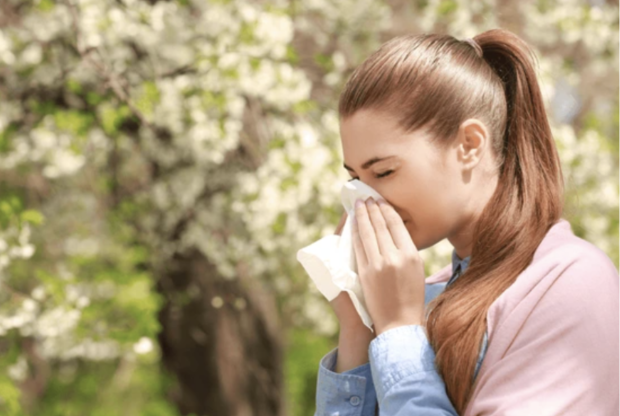- Why Indoor Air Gets Worse in the Winter (and What You Can Do About It)
- 5 Winter HVAC Mistakes You Might Be Making (and How to Fix Them)
- Is Your HVAC Ready for Winter? 5 Things to Check Before the First Cold Snap
- Breathe Happy This Thanksgiving: Why Air Quality Matters When You’re Hosting
- Fall Into Cleaner Air: 5 Reasons to Change Your Air Filter Before the Holidays

As the weather warms up and flowers start to bloom, many people eagerly anticipate the arrival of spring. However, for the 81 million people in the U.S. who have seasonal allergies, this time of year can also bring about discomfort and frustration. The increase in pollen levels can lead to a range of symptoms, from mild sniffles to severe congestion. Fortunately, there are ways to combat these allergens and make your home a sanctuary from the seasonal onslaught.
One of the most effective methods is to invest in air filters for your home. These handy devices work diligently to trap and eliminate common allergens like pollen, dust, and pet dander, creating a cleaner and healthier indoor environment. By removing these irritants from the air, air filters can significantly reduce the triggers that cause sneezing fits, itchy eyes, and overall discomfort for those with allergies.
How do air filters work?
Air filters work by using a fine mesh or filter media to trap particles in the air as it passes through. The filter captures allergens like pollen, dust, and pet dander, preventing them from circulating back into the air you breathe. Some air filters also use activated carbon or HEPA filters to further eliminate harmful particles and odors. By continuously filtering the air in your home, air filters help maintain a cleaner and healthier indoor environment, providing relief for those suffering from seasonal allergies.
What happens when your air filters become clogged?
When air filters become clogged, their effectiveness in trapping allergens diminishes significantly. As a result, the trapped particles can build up within the filter, reducing airflow and causing the system to work harder to circulate clean air. This can lead to decreased indoor air quality, allowing allergens to linger in your home and exacerbate allergy symptoms. In addition, a clogged air filter can also put a strain on your HVAC system, potentially leading to higher energy bills and costly repairs. It is crucial to regularly check and replace air filters to ensure optimal performance and maintain a healthy indoor environment free from allergens.
How often should you change your air filters in your home?
It is recommended to change your air filters in your home every 1 to 3 months, depending on factors such as the type of filter used, the level of pollutants in your home, and any pets in the household. Regularly changing your air filters ensures optimal performance and effectiveness in trapping allergens, keeping your indoor air clean and healthy. By staying on top of filter replacements, you can prevent a buildup of allergens and maintain a comfortable environment free from seasonal allergy triggers. So, make it a habit to check and replace your air filters regularly to breathe easier and enjoy a more allergen-free home. Not sure where your air filters are located? Click here to find out how to locate them in your home.
So, if you find yourself in the 26% of adults struggling with spring allergies, consider incorporating a high-quality air filter into your home. Not only will it help alleviate your symptoms, but it will also provide you with a breath of fresh air in the midst of allergy season.
« Back to News





